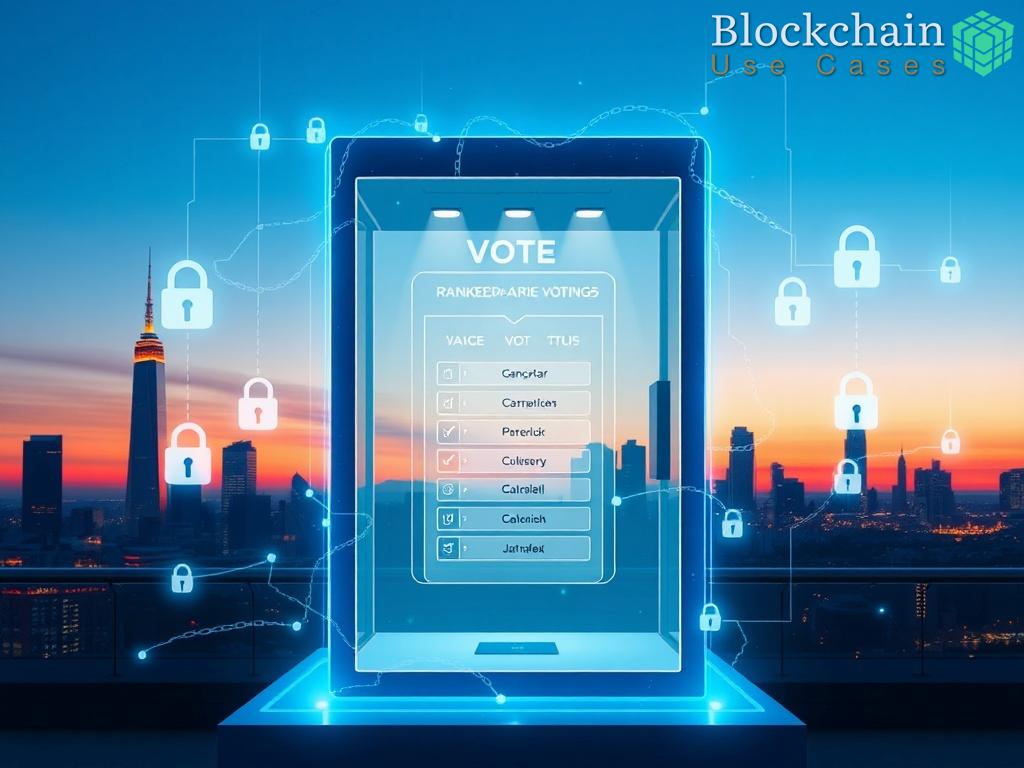Understanding Decentralization in Social Media
The Shift Towards Decentralization
In recent years, the concept of decentralization has gained significant traction in various sectors, particularly in social media. Traditional social media platforms have been criticized for their centralized control, which often leads to issues such as data privacy concerns, censorship, and the monopolization of user-generated content. Decentralized platforms, on the other hand, aim to empower users by distributing control and ownership across a network. This shift is not just a trend; it represents a fundamental change in how we interact online.
Benefits of Decentralized Social Media
Decentralized social media platforms offer numerous advantages that can enhance user experience and engagement. By eliminating a single point of failure, these platforms provide a more resilient infrastructure for social interactions. The following list outlines the key benefits:
- Enhanced Privacy: Users maintain greater control over their personal data, reducing the risk of it being exploited by third parties.
- Reduced Censorship: Decentralization minimizes the ability of any single entity to censor content, fostering a freer exchange of ideas.
- Community Governance: Users have a say in the platform’s rules and policies, encouraging a more democratic approach to content moderation.
- Increased Security: With no central repository of data, the risk of large-scale data breaches is significantly lowered.
- Monetization Opportunities: Creators can explore new revenue streams through direct support from their audience, bypassing traditional advertising models.
Challenges in Implementing Decentralization
While the advantages of decentralized social media platforms are compelling, several challenges must be addressed to ensure their long-term viability. The complex nature of blockchain technology and the need for user-friendly interfaces can hinder widespread adoption. Additionally, the lack of centralized oversight can lead to challenges in maintaining community standards and combating misinformation. As we navigate this new landscape, it is crucial to balance innovation with responsibility.
Key Features of Decentralized Polling Platforms
The emergence of decentralized polling platforms marks a transformative step in how we engage with public opinion and community decision-making. By leveraging blockchain technology, these platforms create a space where transparency, user autonomy, and security converge, fundamentally altering the landscape of online polls. The primary features that define these platforms not only enhance their functionality but also serve to instill trust among users, fostering greater participation and engagement.
Transparency and Immutable Records
One of the standout attributes of decentralized polling platforms is their commitment to transparency. Every poll created and every vote cast is recorded on a blockchain, ensuring that all data is publicly accessible and cannot be altered retroactively. This characteristic fosters a sense of trust among participants as they can independently verify the integrity of the poll results. Additionally, this transparency acts as a deterrent against potential manipulation and fraud, encouraging honest discourse and participation.
User Empowerment and Engagement
Decentralized platforms also prioritize user empowerment by allowing individuals to take ownership of their voting experience. Without a central authority dictating the rules, users can create polls tailored to their specific needs and preferences. This flexibility not only enhances engagement but also allows for a diverse range of opinions to be captured. Participants can propose new poll topics, adjust parameters, and even influence governance decisions on the platform itself, thereby fostering a more engaged and informed community.
Security Through Decentralization
Security remains a paramount concern in the digital age, and decentralized polling platforms address this through their inherent structure. By distributing data across a network rather than storing it in a single location, these platforms significantly reduce the risk of data breaches and unauthorized access. Users can participate in polls with the peace of mind that their votes are securely encrypted and stored across multiple nodes, making it nearly impossible for malicious actors to compromise the integrity of the voting process.
Challenges and Solutions in Decentralized Poll Management
The rise of decentralized platforms for social media polling has introduced a new era of participatory decision-making. However, as with any innovative technology, challenges abound that can hinder the effective management and execution of these polls. Understanding these challenges is crucial for developers and users alike, as it paves the way for solutions that can enhance the overall experience and reliability of decentralized polling.
The Complexity of User Adoption
One of the most significant hurdles faced by decentralized polling platforms is the complexity associated with user adoption. Many potential users find the underlying blockchain technology daunting, leading to hesitation in utilizing these platforms. Furthermore, the diverse range of decentralized protocols may confuse users, especially those unfamiliar with digital currencies or blockchain mechanics. To counteract this, platforms must focus on creating intuitive interfaces that are accessible to a broader audience. Educational initiatives, including tutorials and community support, can also demystify the technology, encouraging more users to engage.
Ensuring Data Integrity and Authenticity
While the decentralized nature of polling platforms inherently enhances security, it also raises questions about maintaining data integrity and authenticity. The absence of a central authority can lead to difficulties in verifying the legitimacy of users and their votes, potentially opening doors to fraudulent activities. To address this challenge, platforms can implement multi-factor authentication and utilize cryptographic techniques to verify user identities. Additionally, developing a robust mechanism for reporting and addressing suspicious activities will help maintain trust among participants.
Facilitating Effective Content Moderation
Another critical issue is the challenge of content moderation in a decentralized environment. Without a central governing body, managing harmful content or misinformation becomes increasingly complex. Users may experience an overwhelming influx of unverified information, leading to confusion and distrust. To combat this, decentralized polling platforms can leverage community-based moderation systems, where users collectively participate in establishing community guidelines and reporting inappropriate content. Furthermore, integrating AI-driven content analysis tools can assist in identifying and flagging misleading information, promoting a healthier discourse.
| Challenge | Proposed Solution |
|---|---|
| User Adoption Complexity | Create intuitive interfaces and provide educational resources |
| Data Integrity and Authenticity | Implement multi-factor authentication and cryptographic verification |
| Content Moderation | Utilize community-driven moderation and AI analysis tools |
By addressing these challenges head-on, decentralized polling platforms can not only enhance their functionality but also build a more engaged and trusting user base. The evolution of social media polling is not merely about technology; it is about creating a democratic space where every voice can be heard and respected.
User Privacy and Security in Decentralized Polls
Prioritizing User Privacy in the Digital Age
The rise of decentralized polling platforms has ushered in a new era where user privacy is not just an afterthought but a foundational principle. These platforms, built on blockchain technology, inherently preserve user anonymity and data protection through their distributed architecture. Unlike traditional polling systems, where user data is often collected, stored, and mined for profit, decentralized platforms empower users by giving them control over their information. This shift ensures that participants can engage in polls without the fear of surveillance or exploitation, fostering a safer environment for open dialogue.
Enhanced Security Measures Against Threats
As the digital landscape evolves, so too do the threats to user privacy and security. Decentralized polling platforms rise to this challenge by implementing advanced security protocols that safeguard user interactions. By leveraging cryptographic techniques, these platforms ensure that each vote is not only encrypted but also securely stored across a network of nodes. This distribution makes it exceedingly difficult for malicious actors to alter or compromise poll results. Furthermore, the use of multi-factor authentication adds an additional layer of security, ensuring that only legitimate users can participate in polls. The combination of these measures creates a robust environment where users can confidently express their opinions without the risk of their data being compromised.
Building Trust Through Transparency
Transparency is a critical element in establishing trust between users and decentralized polling platforms. By making all voting records public and immutable, these platforms provide participants with the ability to verify results independently. This transparency not only deters fraudulent activities but also reassures users that their votes are counted accurately and securely. Additionally, community-driven governance enhances this trust, as users actively participate in shaping the rules that govern their interactions. As a result, users become more invested in the platform, knowing that their privacy and security are prioritized, and their voices genuinely matter in the decision-making process.
Case Studies of Successful Decentralized Polling Platforms
The emergence of decentralized polling platforms has revolutionized how communities express their opinions and make decisions. These platforms exemplify the potential of decentralization in enhancing transparency, security, and user engagement. Several case studies highlight successful implementations that not only showcase the functionality of these platforms but also provide insights into their impact on user participation and trust.
Success Stories of Innovative Platforms
One noteworthy example is Polis, a decentralized platform that leverages blockchain technology to facilitate real-time discussions and polling. Polis has successfully engaged users in meaningful dialogue by allowing them to express their opinions on various topics while simultaneously voting on them. The platform’s unique algorithm aggregates user responses, enabling participants to see how their views align with others in the community. This iterative approach not only fosters a sense of belonging but also encourages users to partake in civic engagement, bridging the gap between online discourse and real-world implications.
Another compelling case is Steemit, a social media platform that integrates polling into its content creation model. By rewarding users with cryptocurrency for their contributions, Steemit has incentivized active participation in polls and discussions. The decentralized nature of Steemit ensures that no single entity controls the content or the outcomes of the polls, promoting a fair and democratic environment. Users have the freedom to propose and vote on topics that matter to them, leading to a rich tapestry of discussions that reflect diverse perspectives.
Lessons Learned from Decentralized Polling Experiences
The experiences of these platforms illustrate that while the benefits of decentralization are significant, challenges also exist. A critical takeaway from Polis is the importance of user education. Many participants initially struggle with the intricacies of blockchain, which can hinder their engagement. By implementing educational resources and community support, Polis has managed to increase user adoption, demonstrating that knowledge is key to participation.
Similarly, Steemit’s approach highlights the significance of community governance. By empowering users to contribute to the moderation and direction of the platform, Steemit has cultivated a loyal and engaged user base. This case underscores the necessity of creating an inclusive environment where users feel their voices are valued, as it ultimately leads to higher levels of trust and participation in polls. These lessons reveal that successful decentralized polling platforms not only innovate technologically but also prioritize the community’s needs and values.


















